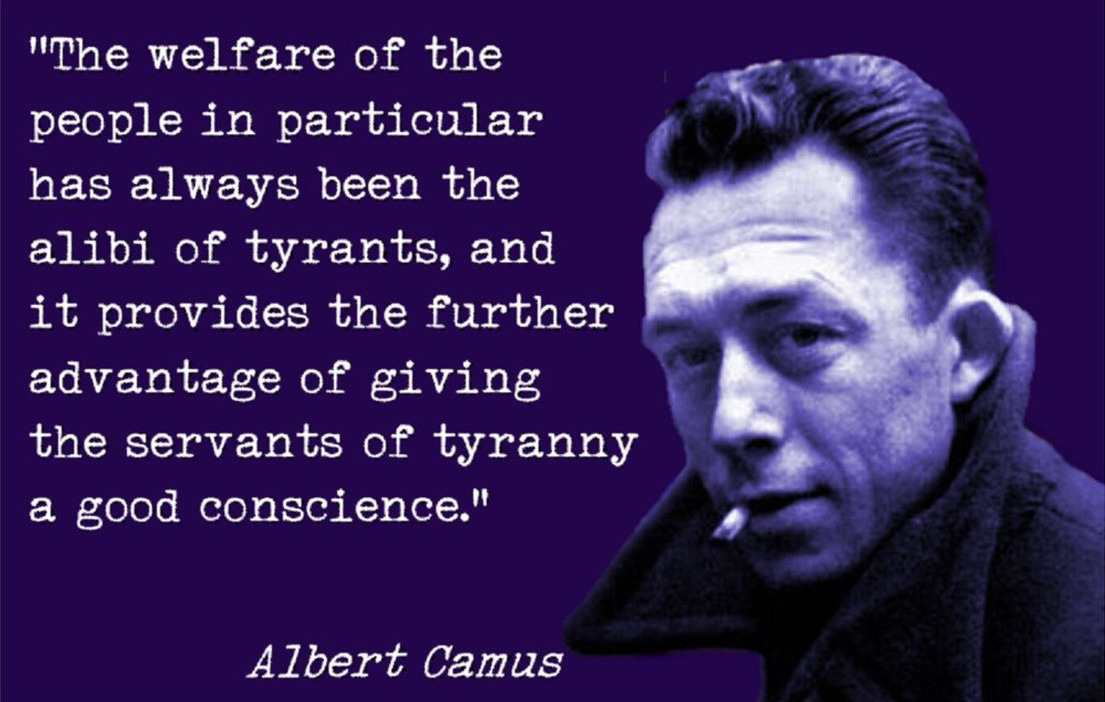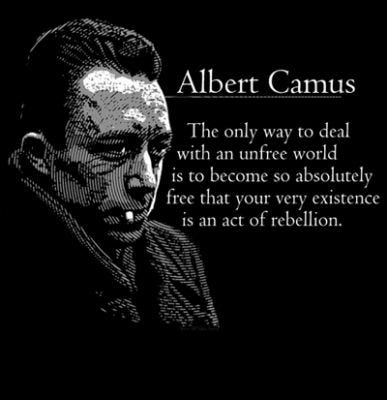Why Do I Feel Hopeless
Because I'm Not Supposed to Feel Anything Else.
Hopelessness is not weakness; rather, it is an essential message from the body, a reminder of the intricate dynamics at play in a world that prioritizes profit over well-being. This message reveals what those in power strive to keep hidden: the truth that exhaustion has been carefully engineered, designed to sap our energy and leave us feeling trapped in a cycle of relentless demands. Despair has become a product we consume daily, as constant messages about success, productivity, and happiness get stuck in our throats. It’s everywhere, shaping the way we think and feel about ourselves and our lives.
Numbness, too, is an insidious force within this landscape, cleverly packaged and sold back to us under the soothing yet misleading guise of self-care. It is Kaa luring Mowgli into a false sense of security, convincing him that disconnecting from feelings is a form of self-preservation, when in reality, it strangles the very essence of our humanity.
The weight of hopelessness we experience is not a flaw but a testament to our capacity for deep emotion and connection. It is a reflection of our awareness, an indication that we still possess the ability to feel intensely, to resonate with both the beauty and the anguish of life. It is the flicker of our spirit refusing to be dulled by the fatigue of modern living, resisting the suppression of authentic emotion in a world that often incentivizes detachment. Embracing our hopelessness ultimately means acknowledging the depth of our feelings and the resilience that lies within, illuminating the path toward healing and understanding in a society that may want us to feel otherwise.
The System Was Designed to Tire Us Out
In our fast-paced world, the constant buzz of activity can often feel overwhelming. We are bombarded by notifications, alerts, and demands from every corner: work responsibilities, social media updates, and the ceaseless churn of political news. Each day is filled with tasks that require our attention, drawing us into a cycle of perpetual motion. Ironically, even though we are always busy, we are making little real progress in the areas that truly matter to us.
This feeling of depletion goes beyond mere fatigue; it reflects a deep understanding of our surroundings and the complex systems we navigate. It’s important to acknowledge that we are not failing; we are bearing the weight of our environment. This heightened awareness can sometimes evoke a sense of hopelessness, especially when we observe the often harsh interplay between empathy and efficiency. In a world that prioritizes speed and productivity, we frequently overshadow the richness of our human experiences. Our fundamental need for connection and understanding can feel like a burden instead of the incredible strength it truly is. It’s essential to recognize and honor these feelings, as they connect us and remind us of our shared humanity.
We observe the world around us and recognize the emotional toll it takes, yet the structures we navigate push us toward efficiency over empathy. This collision can make us feel as if we’re losing touch with our core values, leading to a sense of disillusionment. Still, it’s vital to realize that feeling tired or overwhelmed is a natural response to the relentless pace of life. Rather than seeing ourselves as broken or inadequate, we should acknowledge this fatigue as a sign of our perceptiveness and humanity.
By recognizing and validating these feelings, we can begin to carve out space for meaningful connections and genuine progress, allowing ourselves to step back from the whirlwind and focus on what truly matters to us.
They Feed Us Despair to Sell Us Relief
Every narrative serves as a carefully crafted gateway to purchase, guiding consumers from intrigue to transaction. In times of political unrest, economic instability, or environmental challenges, it’s common to feel a wave of panic. Companies often seize these moments to exploit our fears. This emotional vulnerability is precisely what they rely on to turn distress into profit.
The sales funnel is cleverly designed, with fear as the initial catalyst. News outlets bombard us with sensational headlines about the world teetering on the brink of disaster. Just as the weight of despair begins to settle in, the screen shifts to advertisements for antidepressants, life insurance, or cutting-edge AI-driven wellness solutions. This jarring juxtaposition reveals a striking reality: despair has been transformed into a subscription service, where access to comfort and assurance is contingent upon monetary investment.
They create a space where we can express our frustrations and anxieties freely, offering a sense of understanding and community, but only for those who continue to pay for that privilege. In this environment, individuals are not just customers; they are participants in an ongoing cycle of consumption designed to maintain their emotional well-being. The message is clear: as long as you are willing to invest in fleeting moments of relief, they will provide a façade of support, allowing you to navigate your fears, even if it means staying trapped in a perpetual state of dependence.
They Broke Solidarity on Purpose
Hopelessness doesn’t spread by contagion. It spreads by isolation. When individuals withdraw from one another, a quiet despair takes root, a sense of disconnection that seeps into every corner of society. It’s in these moments of solitude that the systems of oppression and inequality tighten their grip, stifling voices that might otherwise call for change. The fatigue we feel, that weight on our shoulders, becomes intensely personal because society has commodified our struggles, turning our pain into a measure of consumption rather than a call to action.
We can’t revolt alone. Real change requires collective effort, a rallying of spirits and ideas. When we gather, be it through shared meals, community art projects, or simply moments of laughter, we create a counter-narrative to despair. Each act of connection disrupts the established order, challenging the notion that we are meant to endure our suffering in silence. Mutual aid becomes a powerful form of resistance, illustrating that we are stronger together, that hope can be cultivated in the cracks of adversity.
Every gesture of solidarity is subversive: a shared meal, a protest sign raised high, a hug when times are tough. These acts are not merely gestures; they are declarations that we refuse to be isolated, that we reject the commodification of our struggles. We become glitches in the market logic of despair, reminders that human connection cannot be quantified or bought.
By reaching out, we disrupt the narrative that tells us our pain is our own to bear. We infuse our experiences with meaning and purpose, transforming silent suffering into collective resilience. In this way, we sow the seeds of hope, nurturing a garden of solidarity that flourishes despite the bleakness surrounding us. Each moment of connection is a rebellion against the forces that wish to keep us apart; it’s an assertion of our shared humanity. The more we come together, the more we chip away at the walls of isolation, and with every act of love and defiance, we illuminate the path toward a brighter future.
The Truth Underneath
Hopelessness is more than a feeling. It’s a doorway into a deeper understanding of ourselves. It arrives in those moments when everything feels heavy, and the weight of expectations, both from ourselves and the world around us, becomes unbearable. This state of mind often coincides with a profound revelation: that the myth of control is just that. A myth. We realize that no matter how tightly we grip the reins of our lives, there are forces beyond our grasp.
In this realization, it’s easy to mistake our vulnerability for weakness. But in truth, acknowledging our hopelessness is a sign of awakening. We experience a moment of clarity that reveals the reality of our existence. We confront our fears, our limitations, and the illusions that bind us. When we strip away the layers of denial, we discover a raw, unfiltered strength within us.
Society may label this experience as depression, often stigmatizing it as a flaw or a failure. But what if, instead, we viewed it through a different lens? The spirit calls this feeling a pulse check. A necessary pause in our hectic lives that encourages introspection. It’s an opportunity to assess where we are, what we value, and how far we have strayed from our true selves.
This pulse check can be uncomfortable, challenging us to confront our truths, but it is also empowering. It invites us to let go of the relentless pursuit of control and instead embrace the fluidity of life. By accepting our hopelessness, we can begin to carve a new path, learning to navigate uncertainty with grace and resilience. In this way, hopelessness transforms from a dark endpoint into a crucial turning point, guiding us toward greater authenticity and fulfillment.




